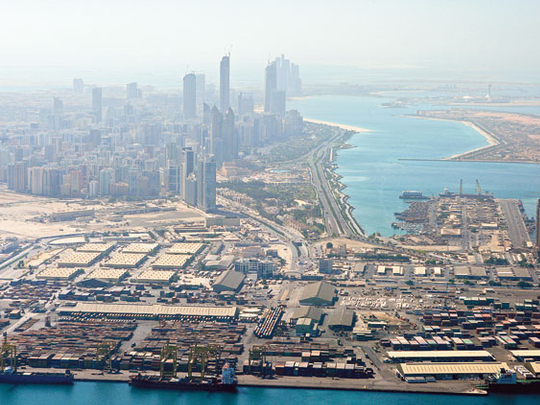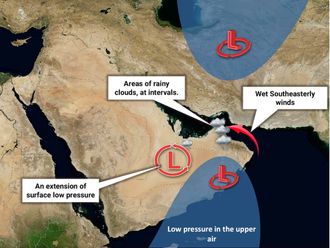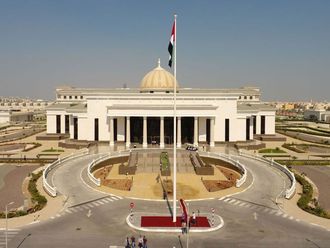
Dubai: On the heels of three new American studies showing adverse health effects from air pollution, the Ministry of Environment and Water is drafting sweeping new laws so residents can breathe easier.
New legislative changes are expected to be introduced through a new "national policy to improve air quality," according to state news agency, WAM.
Dr Rashid Ahmad Bin Fahd, Minister of Environment and Water, said yesterday that the ministry would examine key issues related to air pollution and, armed with the latest scientific evidence, will move toward new laws to protect more than eight million UAE residents.
The environment ministry said yesterday it was looking at "the preparation of legislation and appropriate standards in addition to building databases of modern, reliable and interactive maps of air pollution and capacity building."
Decline in quality
Coinciding with GCC Environment Week, the push to create legislation may help reverse the decline in air quality due to rising industrial facilities, emissions from power plants and car fumes from more than a million vehicles in Dubai alone.
The ministry has in recent years worked to "maintain air quality and reduce rates of contamination and has worked to strengthen their capacities in monitoring and control through a wide network of monitoring stations scattered all over the country," estimated to now stand at 24, the statement said.
Six of those stations are in Dubai.
The latest push to beef up national air quality standards could put new teeth in existing laws on the books such as Federal Law No. 24, enacted in 1999 to impose "standards and limits" on pollution-emitting corporations and individuals.
The announcement of clean-air laws comes only days after studies of thousands of test subjects showed very clear impacts on human health when exposed to a raft of small and often microscopic substances in the air, especially in urban centres with high fossil fuel consumption.
A study published in The Journal of the American Medical Association on Wednesday examined the short-term effects of being exposed to airborne compounds such as carbon monoxide, sulphur dioxide and particulate matter.
The report suggested that "all the main air pollutants, with the exception of ozone, were significantly associated with a near-term increase in MI [myocardial infraction — also known as heart attack] risk."
Greatest risk
Yet another academic study that tracked 1,705 Boston area residents suggested in the Archives of Internal Medicine on February 13 that "the increase in risk was greatest within 12-14 hours of exposure to particulate matter [below 2.5 um] and was most strongly associated with markers of traffic-related pollution."
A third separate study that tracked 19,409 American women aged 70-81 years concluded that "long-term exposure to particulate matter [PM 2.5-10]… at levels experienced by many individuals in the United States is associated with significantly worse cognitive decline in older women."
In fact, authors of the study suggested that "chronic exposure to particulate air pollution may accelerate cognitive decline in older adults, although data on this association are limited."
So how is the air quality in Dubai, for example? Gulf News logged on to Dubai Municipality Air Control's online website yesterday but no latest data was posted on its ‘emission data statistics' web page.
Faced with little to no local data on air quality, Gulf News did its own air quality study in 2009 and found that while some areas of the emirate had levels higher than international standards, the city was well within usual limits of that of a larger European city.
In addition to particulate matter, the study also found benzene, sulphur dioxide, nitrogen dioxide and volatile organic compounds present in the air.
Organisers of the Green Middle East conference planned for October at the Expo Centre in Sharjah say that air pollution is still a continuing concern.
"Air pollution has become an increasingly important environmental issue in the Middle East," said organisers. "Transportation ranks among the top three major sources of pollution among Mena states along with oil and gas production and power generation."
Estimates suggest that "Arab countries spend more than $5 billion (Dh18.3 billion) to attend to health problems cause by vehicle emissions. This reflects the huge amount of air pollution generated by the transport sector alone."












